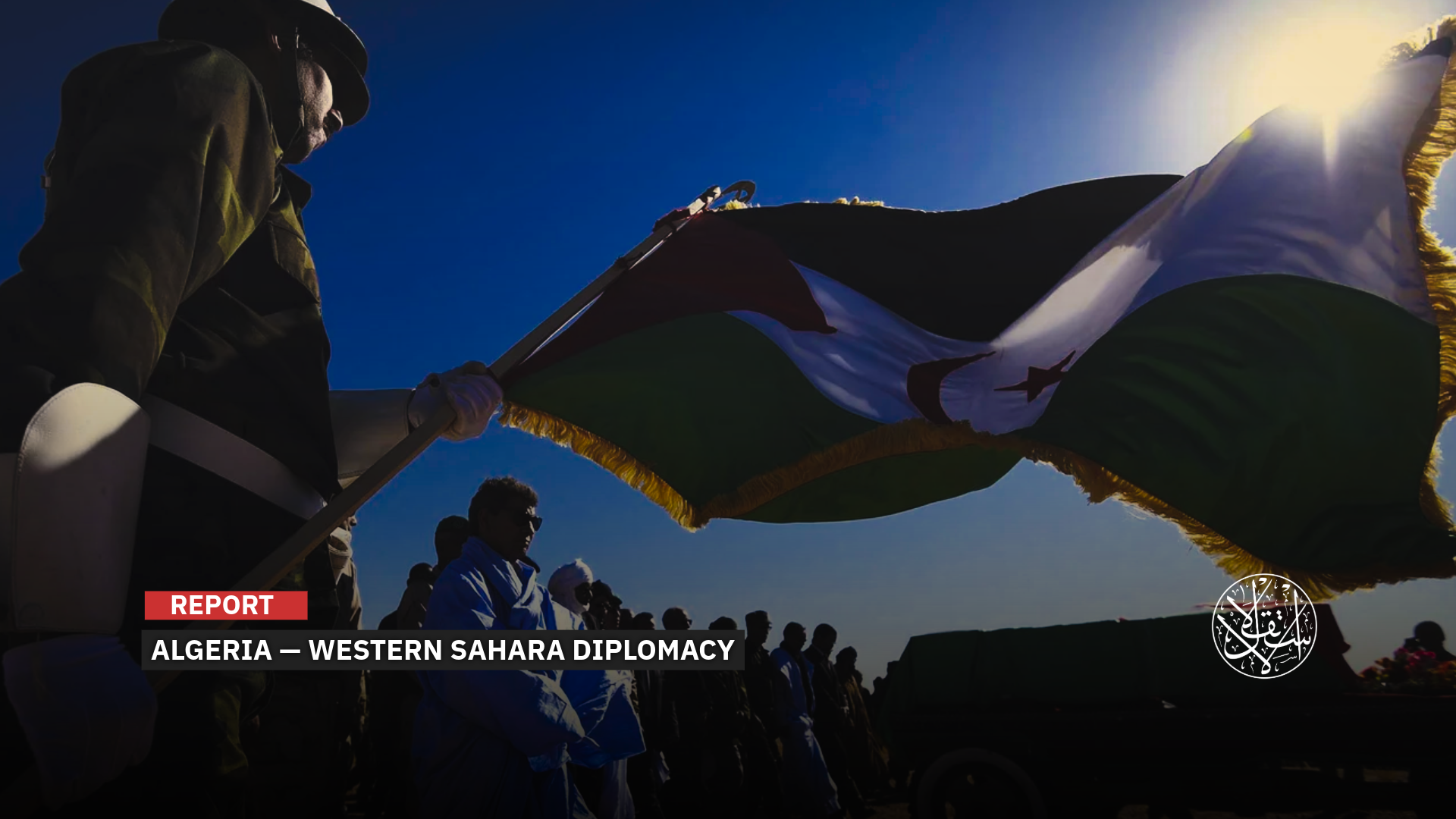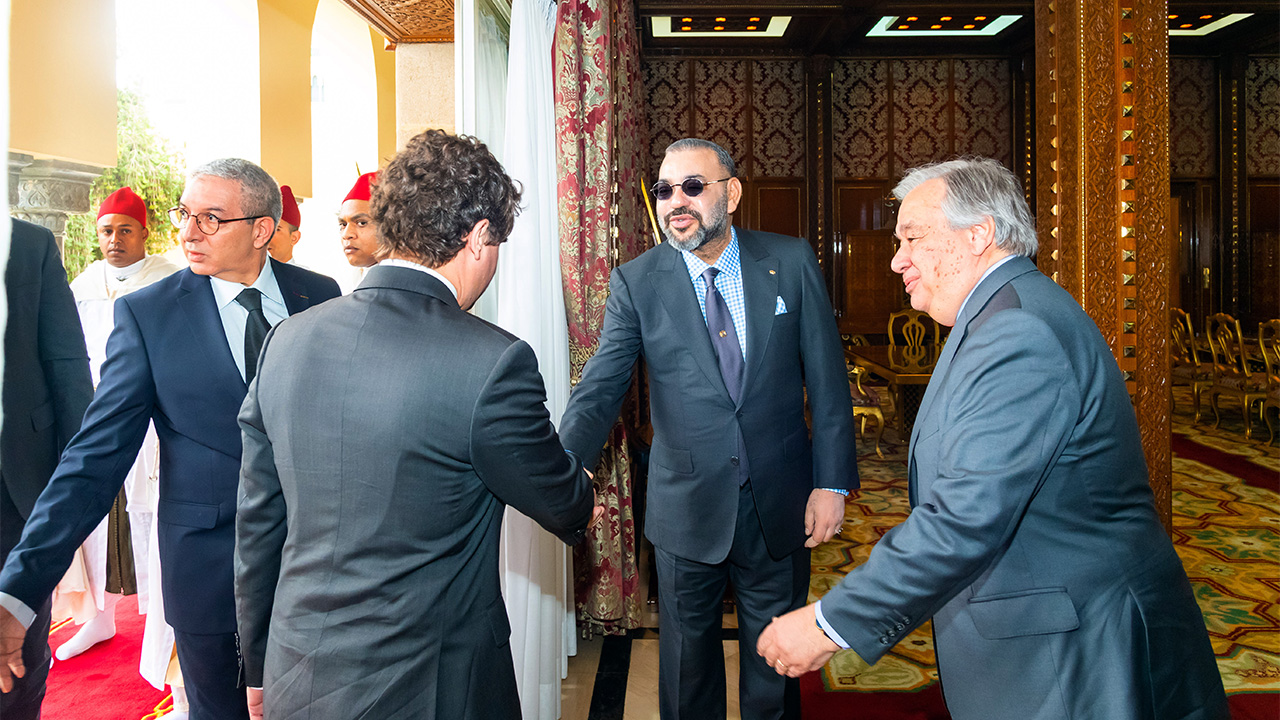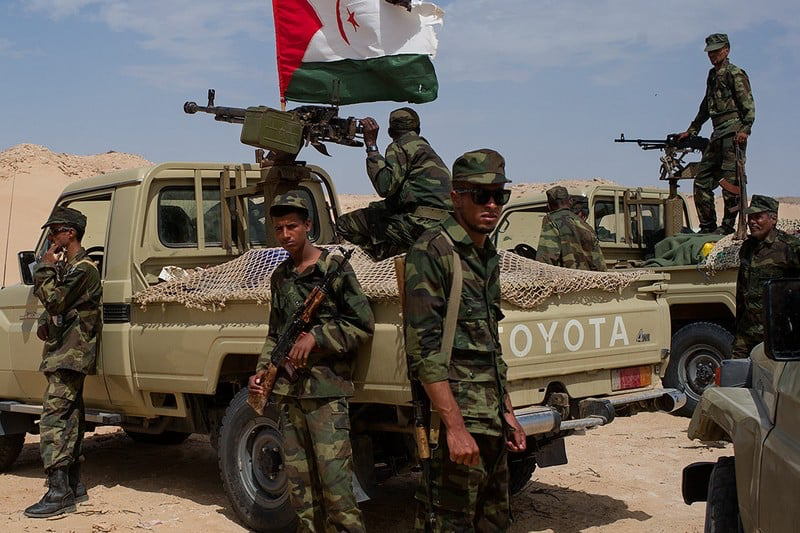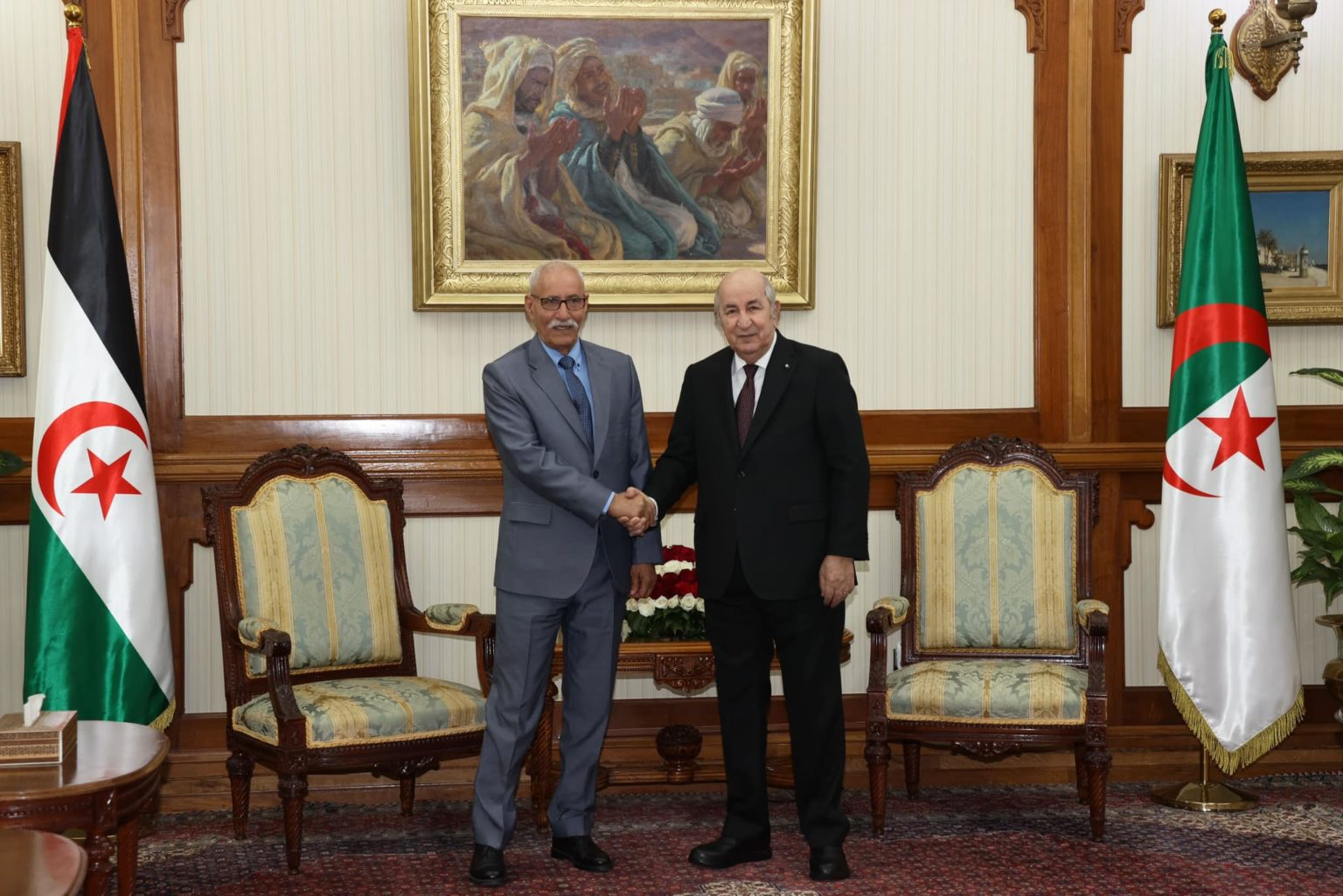Guterres Calls Out Algeria Over Western Sahara Deadlock: But Will Anything Change?

“Despite declarations of intent,” there has been no “concrete improvement” in Algerian-Moroccan relations.”
As the Western Sahara dispute nears its fiftieth year, UN Secretary-General Antonio Guterres has renewed calls for a long-overdue resolution to what he described as Africa’s longest-running conflict, urging Algeria to take greater responsibility in seeking a political settlement.
In his latest report to the UN Security Council, circulated to the media on October 24, 2025, Mr. Guterres reiterated that neighboring states, foremost among them Algeria, have “a crucial role to play in achieving a solution” to the dispute, noting that a resolution would also strengthen their own security and development prospects.
Renewed Efforts
The report praised recent signals from Morocco expressing openness to dialogue with Algeria, highlighting in particular King Mohammed VI’s Throne Day address on July 29, 2025, in which he reiterated Morocco’s desire for a “consensual solution that saves face for all parties, where there will be neither winner nor loser.”
The UN chief observed that “despite declarations of intent,” there has been no “concrete improvement” in Algerian-Moroccan relations.
It urged both countries to renew their efforts in the interest of regional cooperation, describing it as an essential condition for lasting peace across the Maghreb.
In the same vein, the Secretary-General acknowledged King Mohammed VI’s “expressed desire for a consensual solution, one with no winners or losers, that preserves the dignity of all parties.”
The report also noted that Morocco had reaffirmed to the UN Secretary-General’s Personal Envoy, Staffan de Mistura, its call to relaunch negotiations within a framework that brings together all concerned parties, including Algeria.
This renewed emphasis on dialogue comes as the United Nations and the wider international community intensify their efforts to revive the political process ahead of the fiftieth anniversary of the Western Sahara dispute in November 2025, a conflict that has long stood as one of the most enduring and divisive in Africa.
At the U.S. level, Donald Trump’s senior adviser, Massad Boulos, ended weeks of speculation over Washington’s position on developments in the Western Sahara issue.
In an interview with Sky News Arabia on October 27, 2025, Boulos said the United States maintains a “clear and consistent” stance based on supporting the UN-led process and encouraging Morocco’s 2007 autonomy proposal as the realistic and lasting solution to the conflict.
Boulos expressed the administration’s optimism about the possibility of reaching a final settlement to this long-standing dispute, stressing that “the coming phase will see renewed diplomatic momentum to find a consensual outcome that satisfies all parties, within a framework of realism and responsibility.”
Algeria, for its part, continues to advocate what it calls the Sahrawi people’s right to self-determination, providing the Polisario Front with financial, military, and diplomatic backing, as well as hosting Sahrawi refugees on its territory in the Tindouf region.
Morocco, meanwhile, has proposed an expanded autonomy plan for the disputed territory, allowing local populations to manage their own affairs independently, except for sovereign matters, which would remain shared with Rabat, including currency, the flag, defense, security, and foreign relations.

A Standing Responsibility
In his reading of Guterres’s report, Mustafa Bouznar, a researcher in international studies at the Faculty of Law in Rabat, said it comes amid a global context marked by growing recognition of Morocco’s 2007 autonomy initiative, which has gained increasing diplomatic momentum both regionally and internationally.
Speaking to the local site Chafaf on October 25, 2025, Bouznar argued that Algeria is experiencing a period of rising political isolation at both the regional and international levels, due to its steadfast support for the Polisario Front across multiple arenas.
He noted that Algeria is closely monitoring Security Council proceedings, particularly in light of the possibility that the upcoming UN resolution may include clear references to the Polisario’s responsibility for actions that threaten security and stability in the Sahel and Sahara regions.
The academic suggested that the forthcoming resolution could, for the first time, describe the Polisario as an extremist separatist movement, given its involvement in smuggling operations and cooperation with transnational terrorist groups.
According to Bouznar, this development is a direct result of Moroccan diplomatic efforts over the past two years, which have worked to expose the Polisario’s links to human trafficking, drug smuggling, and arms networks.
He added that Algeria views any condemnation of the Polisario as a direct threat to its interests, as it undermines its narrative on self-determination and positions the country as a supporter of an armed separatist group.
Bouznar also pointed out that the Polisario recently sent a letter of protest to the Security Council president, denouncing what it called a “serious deviation” in the U.S. draft resolution and threatening to boycott any future negotiations on Western Sahara.
He concluded that the next Security Council resolution is likely to mark a significant turning point in the Western Sahara dispute, potentially extending the MINURSO mandate for an additional year while highlighting the efforts of Moroccan diplomacy to achieve a final settlement.

Algerian Reaction
The UN report and developments on the Western Sahara issue have also sparked reactions in Algeria. Abdelkader Bengrina, head of the National Construction Movement, described the Western Sahara question as being subject to an “international conspiracy,” according to his remarks.
Speaking at the National Forum of Student Leaders on October 25, 2025, Bengrina told El Khabar that recent developments in the Sahrawi issue reflect “the challenges and transformations facing our regional neighborhood and strategic environment at this stage, and the role Algeria plays in stabilizing these areas, whether in the Sahel and Sahara region or in our Libyan vicinity.”
He further linked the issue to “an international arena that has become a volatile and shifting world, witnessing the difficult emergence of new axes vying for influence and resources.”
Bengrina called for a clear understanding of Algeria’s position as a sovereign state with independent decision-making in the face of these transformations.
Regarding its stance on the U.S. draft resolution submitted to the UN Security Council, the Polisario Front described it as a “serious and unprecedented deviation, not only from the principles of international law underpinning the Western Sahara as a matter of decolonization, but also from the established framework through which the Security Council addresses the issue.”
Meanwhile, Gamal Abdel-Salam, head of the New Algeria Party, reaffirmed the party’s, and Algeria’s, support for the Sahrawi people in their struggle for freedom and independence.
According to the Polisario News Agency on October 27, 2025, Abdel-Salam expressed his rejection of “any unilateral solutions or proposals that contravene the right to self-determination guaranteed under international charters.”
He also affirmed the party’s commitment to “advocating for the Sahrawi cause in various continental and international forums, supporting the Sahrawi people and their legitimate right to independence, and the establishment of a free state over their entire national territory.”

Deep Transformations
Political journalist Tarek Qattab argued that “the UN Secretary-General’s report explicitly endorses the autonomy plan as a solution to the Western Sahara dispute. For the first time, the text directly affirms Morocco’s autonomy proposal.”
Speaking to Al-Estiklal, Qattab added that, more importantly, the resolution sets January 31, 2026, as the target date for a final political settlement and signals that the UN MINURSO mission could be either transformed or ended if no progress is made within six weeks.
“All these factors help explain the Algerian regime’s alarm and its avoidance of the upcoming vote, as Algerian diplomacy has sensed the imminent threat posed by these developments.”
“The reason is clear: the text literally enshrines what Morocco has advocated since 2007, the autonomy plan under Moroccan sovereignty, while simultaneously undermining the separatist narrative that the Algerian regime has supported through the Polisario Front for half a century.”
“American media reports indicate Algeria will not participate in the decisive Security Council vote scheduled for the end of October.”
“Behind this scene is the fear of the Algerian regime, which realizes that voting against the resolution would leave it in total diplomatic isolation, while voting in favor, would mean recognition of Morocco’s autonomy plan.”
He further observed that the text ensures the involvement of all “concerned parties,” namely Morocco, Algeria, Mauritania, and the Polisario Front, in consultations led by UN envoy Staffan de Mistura.
Qattab emphasized that this explicit mention, often previously avoided, establishes Algeria as an active party to the conflict rather than merely a “concerned neighbor,” fundamentally changing the dynamics. Algeria can no longer claim to be a mere “observer” of the process, but must sit at the negotiating table it has long boycotted.
He added that Algeria is now obliged to participate actively and in good faith in negotiations over the Western Sahara autonomy plan under Moroccan sovereignty, or else it will bear responsibility for any potential failure.
This, he argued, explains the clear unease and attacks over the Security Council’s perceived bias.
“The Algerian regime has reason to feel panic; if adopted as is, the resolution marks a diplomatic victory for Morocco and buries the separatist dream, which it has long sustained with oil revenues and propaganda.”
“The era of pretense and evasion is over. Western Sahara has entered a period of political resolution, and the Algerian regime is entering a period of deep crisis,” Qattab concluded.










